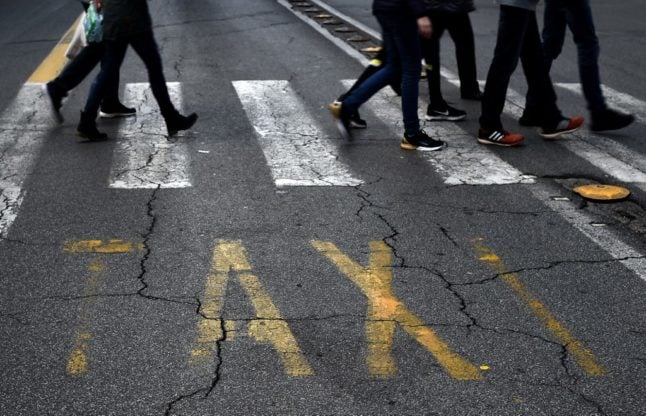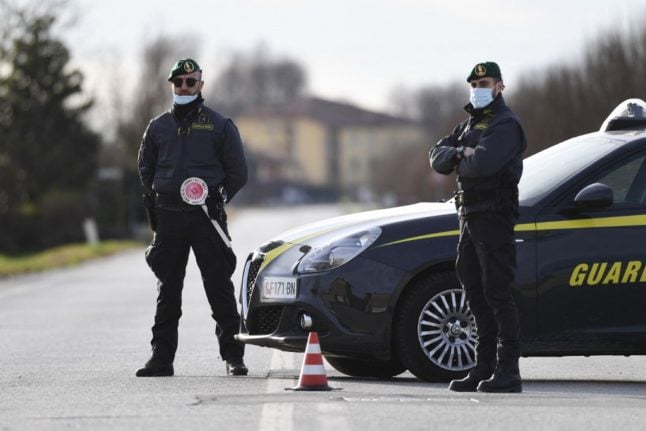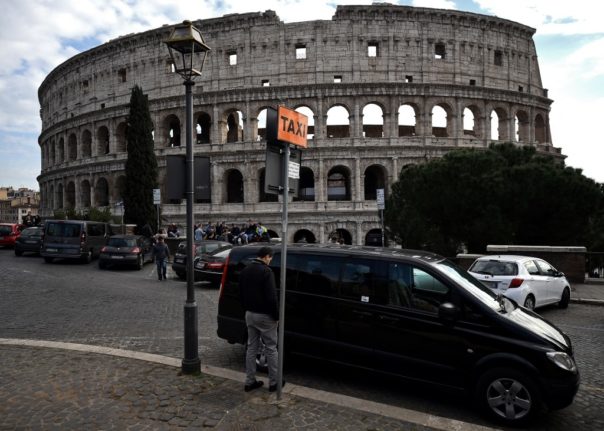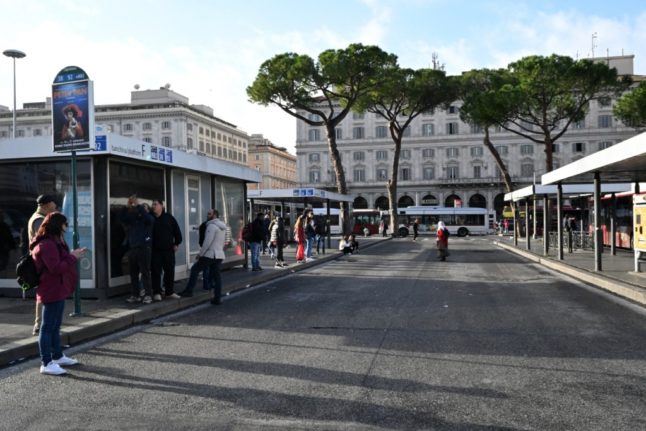Question: ‘I’ve heard taxi drivers in Italy are now legally required to let you pay by card. Is this true, and what exactly are the rules?’
Italian taxi services have long been the target of intense public scrutiny, with drivers up and down the boot often doing very little to avoid criticism from high-profile public figures and regular Italian citizens alike.
Reports of taxi drivers ripping off unsuspecting tourists in major cities are common: last month, the BBC’s Italy correspondent Mark Lowen shared the story of how a friend was charged 70 euros for a journey from Rome’s Fiumicino airport to the city centre – a trip that has a fixed cost of 50 euros.
READ ALSO: Rome vows to crack down on ‘rip-off’ airport taxis targeting tourists
But overcharging aside, Italian taxi drivers have also been long known for their ‘unenthusiastic’ attitude towards card payments, with many reportedly insisting on cash only.
So, in an effort to clear up at least some of the doubts on the subject, we’ll try to answer the pressing question of whether or not Italian taxi drivers are actually required by law to accept electronic payments.

From a legal point of view, there seems to be no room for confusion.
Since 2014, businesses selling items or services have been required to accept card payments (under Article 15 of Bill (Decreto Legge) 179/2012, later updated by Article 18 of Bill 36/2022). The law says they should accept at least one type of credit card, one type of debit card, and prepaid cards.
This regulation applies to all retailers, business owners and self-employed individuals. As such, it encompasses taxi drivers.
Though whether or not this law has been widely enforced so far is another question.
Under an update to the law, as of June 30th 2022 there are penalties for non-compliance: businesses caught refusing card payments are liable to pay “a 30-euro administrative fee plus four percent of the value of the transaction previously denied”.
So, for instance, in the case of a 100-euro fare, the driver who did not accept a card payment is liable to receive a fine equal to 34 euros (30 plus 4, i.e. 4 percent of 100).
Having said that, while the law does compel taxi drivers to accept card payments and fines are in place for those flouting the rules, many taxi drivers are – to put it mildly – not so fond of the idea of having clients pay by card.
READ ALSO: Reader question: Why can’t I get an Uber in Italy?
The latest incident happened earlier this week in Milan.
When Philip, 43, and his 12-year-old daughter Raymie, from Melbourne, Australia, asked to pay for their five-euro taxi fare by card, their driver told them that he would only accept a cash payment.
After an argument, the taxi driver flew into a rage, got out of the vehicle and started throwing his customers’ luggage onto the street – as a result, most of the Murano glass items they had bought while visiting Venice were destroyed.
The whole scene was captured by an incredulous resident and later posted online, where it quickly went viral.
Sadly, this was just the latest in a long series of incidents involving denied card payments, including several reported by high-profile Italians.
Last month, writer and content creator Camilla Boniardi, better known by the moniker ‘Camihawke’, got into a heated argument with a taxi driver who initially said he wouldn’t accept a card payment before backing down.
Italian gymnast Carlotta Ferlito wasn’t as lucky as, after reminding her driver that he was legally obliged to accept card payments, she was asked to get out of the car halfway through her journey.
So, given Italian taxi drivers’ apparent propensity to lose their cool at the mere suggestion of a card payment, what should you do in the event you are denied the right to pay by card?
The enforcement of any rules involving electronic payments is up to the Italian Revenue Agency (Agenzia delle Entrate) and the Financial Police (Guardia di Finanza).

So, should you be unlucky enough to find yourself in this situation, you have the option of reporting the driver to the police.
The easiest way to do so is by calling the Guardia di Finanza at the toll-free number 117, though keep in mind that not all operators will speak English fluently.
Alternatively, you can print out and complete this form. There’s no option to submit it online – you’ll need to hand-deliver it to the nearest Guardia di Finanza precinct.
For further information please see the Guardia di Finanza website.



 Please whitelist us to continue reading.
Please whitelist us to continue reading.
Member comments